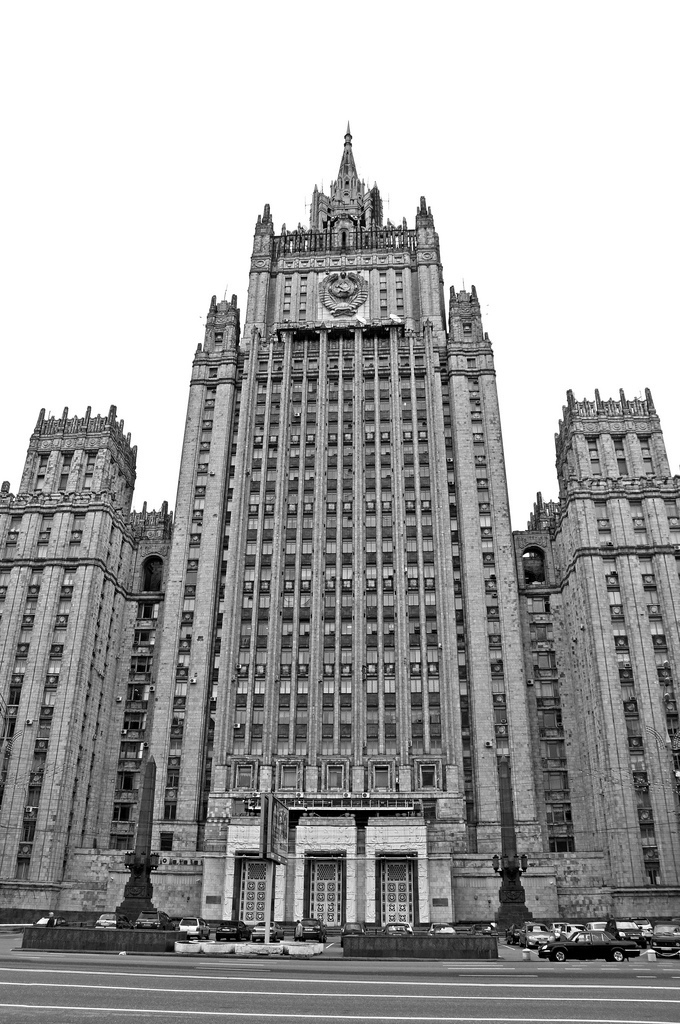 Russia is an enormous, continent-sized country, made up of 85 different federal parts, 22 of which are republics, in nine time zones. How does local and regional government digital engagement work?
Russia is an enormous, continent-sized country, made up of 85 different federal parts, 22 of which are republics, in nine time zones. How does local and regional government digital engagement work?
The Open Innovations forum took place in Technopolis, a vast warehouse-size venue in one of Moscow’s regenerating old industrial areas. Amidst all the start-ups and intriguing nanotechnology companies displaying their services, I found myself drawn to the refreshingly non-austerity exhibition stands of the regional governments, or oblasts, hoping to attract tech companies and investment.
The first exhibition stand I approached was promoting Kaluga, a region in the central west ofRussia not far from Moscow. A friendly-looking gentleman smiling patiently at my attempts inRussian introduced himself in very good English as Dmitry and said that right from the start the national government had adopted a gov.uk approach and put all transactions and official registration pages onto a single central website – www.gov.ru I think – leaving local and regional government pretty much with news updates.
What about social media: can you take a photo of, say, a pothole, and report it to the local council on Twitter? Dmitry said that official accounts were checked regularly and items reported like that were swiftly acted on, and that Twitter was recognised as a fast and efficient way to interact with residents and businesses. He said that most local and regional politicians in Kaluga have public profiles on social media such as Twitter and Facebook, though chiefly for official announcements.
So far, so familiar. Next was Lipetsk Oblast, a heavily agricultural region, again in the central west of Russia. Aleksei was only too happy to try out his English on me, and said a new feature was that an enterprising group of students at a local technical college had developed software publishing live data on how the region was being farmed, and the Lipetsk government had given the project its support.
Aleksei said: “It allows the local authority to monitor how the land is cultivated – you can see on the screen instantly what’s going on, for example in all corn fields. It’s to improve how locally we can work together, to better coordinate. The next step is to open this information out on the internet, and the hope is that this will attract more investors to the region.”
Researching before flying out, I’d read good things about Tatarstan, a natural resources-rich republic with its own Tatar language and culture, and located above the western end of Kazakhstan: www.opendata.tatarstan.ru would appear to do exactly what it says on the tin. Sadly, the three charming young women staffing the stand spoke limited English, as did their rather more stern-looking supervisor.
And what of Moscow City Government? Russia’s capital has 12 million residents, a city budget of $52 billion, and in 2012 increased its size by more two and half times, in part to help develop new business districts. Oleg Bocharov, the city’s Head of Science, Industrial Policy, and Entrepreneurship, told me through an interpreter that there was a single portal approach -www.pgu.mos.ru - for all Moscow residents and businesses to register with in order to engage with public services online.
He said: “Just this morning I used the site because my son took a mathematics test at school – I checked on the site and he got a good mark. If you decide your child should go to some sporting clubs, you can see which ones are near their school, and see profiles and photos of the coaches. You can also use this site on your mobile phone.”
Apparently you can do everything from paying parking ticket fines, to making doctor’s appointments, registering your marriage, checking how much your household spends on energy and water bills, registering to become a taxi driver, to checking live CCTV footage to see if there are any of Moscow’s frequent traffic jams nearby.
Is this a capital-led experiment in devolving greater digital autonomy to local government, or simply recognising that Moscow is so enormous that it needs to be treated slightly differently? By this stage others had leaped in to ask other questions. I’m not sure London has anything like this, particularly the bits about checking your children’s school test results, or utility bills.
Lastly: during four days of zipping around all over Moscow I didn’t see a single piece of litter, and the streets were very, very clean. Then again, the city has a $52 billion budget…
James Willsher is communications manager for Hackney Council. Twitter and email jamesgwillsher@hotmail.co.uk
